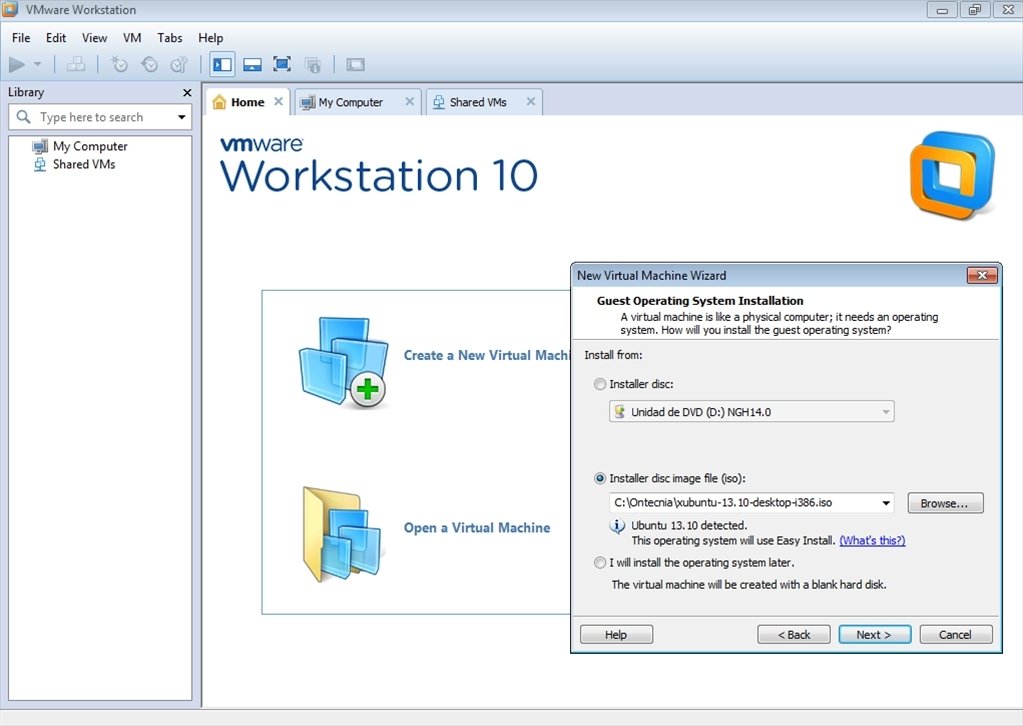

- Vmware free version ok for business use software#
- Vmware free version ok for business use license#
- Vmware free version ok for business use windows 7#
Perhaps I'm missing something, but riddle me this: Just had a quick read through your article, nicely put together. Http:/ / data-center/ smb-virtualization-all-your-eggs-in-one-basket-1.html This is a common misconception of how risk works. Risk ratio actually goes down, not up, when virtualizing. I've never once seen an SMB still want HA after an actual risk and cost analysis. But just because they want HA doesn't mean that it is applicable to them. Yes, SMB clients are often completely confused about risk profiles and mitigation costs. Think about it this way, if I have 4 VM's running on one physical host, I have just increased my risk ratio by 400%. Most if not all clients want High Availability and vMotion which comes with vSphere Essentials Plus. I can only think of two clients who have gone down this route and we have always recommended an enterprise backup solution such as Veeam Backup & Replication to enable a decent RTO/RPO. Only very small companies use vSphere Essentials normally on a single host to gain the benefits of having the virtual server agnostic to the hardware platform. I work with SMB and Enterprise companies. You'd have to be one seriously rich company to have scaled past the limits there. Less than 1% of SMBs need anything more than that.
Vmware free version ok for business use license#
Pretty much every SMB can use the $600 VMWare vSphere Essentials license and get everything that they need. I am looking forward to try the newest version (3.0 I believe) of Hyper-V as M$ has supposedly made great strides in improving Hyper-V. But, I use the free version of ESXi for production in multiple environments and still prefer that to Hyper-V (although the free version is a little more labor intensive). That said, VMware changed their pricing structure and now it can cost significantly more than it did a year ago. I have used both in production environments and each has its own strengths but in the end I find ESXi manged by vCenter the most flexible and managable. 3 should change some of this but we'll see. There are a lot of "yah we do that" things Hyper-V has, but they can't really be used for production. Microsoft Snapshots should not be used in production, they can't be removed non-disruptively (Their guys words).
Vmware free version ok for business use software#
These are probably basic functions but this software allows you to allocate dynamic memory for each VM, dynamic disks, snapshots, mass power changes (power on/off, resume, etc) as well as many other features.ĭynamic memory has a really limited support for OS's and can still cause problems as it actually changes the amount of memory application's see and their own meta memory management can have issues (java and oracle hate this).
Vmware free version ok for business use windows 7#
Hyper-V Manager can be installed on any network computer running Server 2008 R2 SP1 or Windows 7 SP1. It is a completely self contained hypervisor that can be installed in place of the operating system. Please note that this is not a Windows product and does not require Windows Server 2008 R2. SellinMehStuff have been impressed with Hyper-V Server 2008 R2. In IT it cannot be overstated how important it is to be precise because otherwise the responses that you get will very often not be for the thing that you think that they are. So always use the product name, rather than the company name. VMWare Server was their answer to the equally awful Microsoft Virtual Server. But you mean VMWare vSphere, their current product that comes from ESX and competes with HyperV.

The closest product to sharing the name is the horrific, not for business use, long discontinued VMWare Server. VMWare is a company, there is no product by that name. How do we know what product you are talking about? You wouldn't call Windows Microsoft, for example. Here is a REALLY important tip that Samatic highlighted - never refer to a product by the name of the company that makes it. What are you thoughts on this guys? I know alot of people use/recommend vmware.


 0 kommentar(er)
0 kommentar(er)
